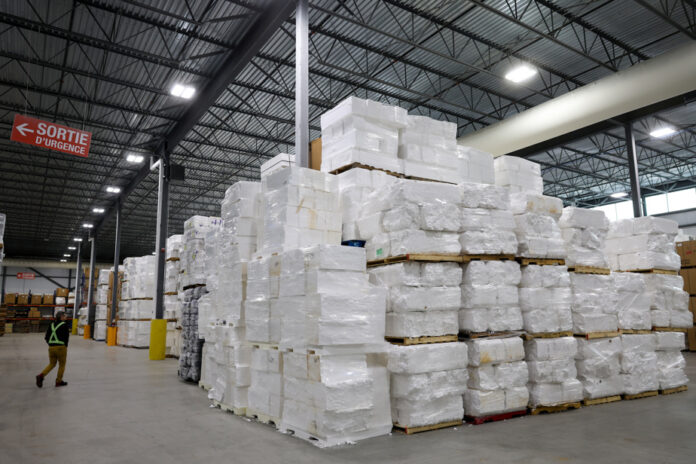Businesses large and small are facing pressure from all sides to green their operations. And with all the means at their disposal to achieve this, one might wonder why some have not yet followed suit.
Last February, the Chamber of Commerce of Metropolitan Montreal published the results of the survey The commitment of businesses in Greater Montreal to the green shift. If we could be pleased to learn that 95% of respondents find it important to go green and that 56% of companies have integrated environmental practices into their business strategy, we also discovered that 79% of they require additional support to get there. Lack of expertise and funding topped the list of obstacles preventing the integration of a green strategy.
Complicated, greening your business? “It’s not that complicated because we have the knowledge, we have the resources, we have the expertise, we have the technologies and we have the financial means to do it, so stop thinking that it’s complicated. Do it. Invest yourself. Go look around, find the resources, do it,” says Pierre Langlois, president of the consulting firm Econoler (for “energy saving”).
Pierre Langlois is well aware that companies have other fish to fry than projects to green their activities: profitability, the search for a qualified workforce, the replacement of a machine that has just broken, etc. . “Fundamentally, businesses have short-term issues,” he says. And the ecological transition is rather a project whose benefits are measured in the long term. It is for this reason that Econoler developed SOFIAC, a subsidiary which addresses the financial barrier that companies often put forward to justify their inaction in terms of going green.
In terms of expertise, there are more and more resources that pride themselves on being able to support companies in greening their activities. Another Econoler subsidiary, CIET, is one example among many others.
Energy consumption is responsible for almost half of the world’s greenhouse gas emissions. Even though there are a ton of ways to green your business, this aspect remains a challenge.
Wind, solar, biomass, biofuel, biogas and electricity: renewable energy sources are numerous, and Mr. Calzado affirms that “to achieve our climate objectives, there are several sectors that will be called upon to help decarbonize industries “.
For his part, the president of Econoler maintains that “to achieve the objectives of the Paris Convention, 50% of the reduction in global greenhouse gases will have to come from energy efficiency, therefore from better use of energy. Before using clean energy, it is better to save it.” The latter adds this: “We know how to green businesses in every possible way, the question is to make it a priority. »
In spring 2018, when Pierre-André Lebeuf arrived at Soprema as head of sustainable development, environmental protection was already a priority for the company. The international manufacturer of insulation, waterproofing, soundproofing and green solutions products, which has 25 factories in Canada, had already inaugurated a first LEED building in Drummondville a few years earlier, when no one was taking care of sustainable development. in the business. “There was already great will from management. There was a good breeding ground for great projects, but on the other hand, there was no one taking care of them and there was no structured approach behind the orientations,” he says.
Pierre-André Lebeuf surveyed employee interest in green initiatives. He has done many workshops to educate and raise awareness and has developed a sustainable development policy. “What sets us apart is that we integrate sustainable development into all facets of the product life cycle. Are we perfect? Truly not. We are making a lot of progress, we have a lot of concrete examples which demonstrate that we are consistent in what we do, but we still have a way to go,” he admits.
Among Soprema’s recent green initiatives, the recovery of polystyrene collected in the two Sherbrooke ecocenters. This collection contributes to the recovery of 10,000 tonnes of polystyrene each year in the form of insulating panels. This process avoids the emission of around 20,000 tonnes of CO2 annually.















